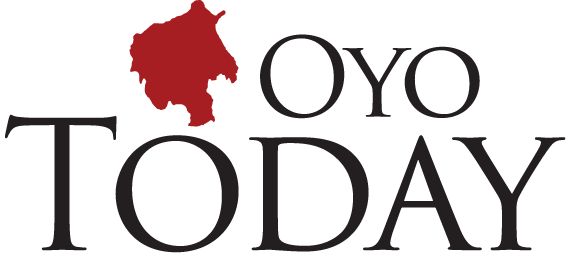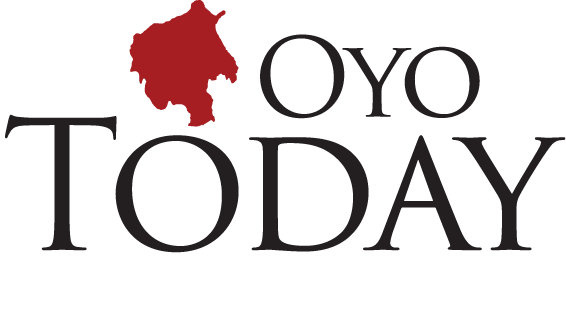Restoring faith in the Nigerian project
- 614 Views
- oyotoday
- January 6, 2021
- Uncategorized
THE rare admission of the failure of governance by the Speaker of the House of Representatives, Femi Gbajabiamila, rekindles the desperate need to assuage the seething mass discontent in the country.

His recognition that more Nigerians had lost faith in their country due to the prevailing frightful insecurity and economic distress was forthright; it underscores the increasing fragility of a tottering federation and the misery of the majority of its people.
Gbajabiamila was candid as the House rounded up sittings for the past year. “This year (2020), we have seen the structural inadequacies of our economy and health care systems. Our internal security and justice architecture have left us dangerously exposed to the risk of a complete and irreversible loss of faith in the Nigerian project by a large section of our citizenry.” Describing 2020 as “a tough year of suffering for too many citizens,” he admitted the failure of the Major General Muhammadu Buhari (retd.) regime to address the security and economic crises. Two major takeaways from the Speaker’s lament: first, the situation has become critical enough to deny the country’s leadership the luxury of living perpetually in denial. Second, time is running out to reshape governance and reverse mass poverty and mass despair from above to avoid implosion from below.
He is right. The times require courageous, bold, visionary, capable and empathic leadership that get the country out of the self-dug hole. Sadly, these qualities have been signally lacking in the Buhari regime. The republic is meanwhile close to the brink, he and all segments of the political structure, including the National Assembly, need to boldly confront the country’s problems, reduce poverty and douse mass disillusionment to avert state collapse. Immediate steps should be taken to correct Nigeria’s fundamental problem, which is the centralisation of a natural federation and return power to its constituent states. Once whispered in polite conversation, global bodies are now boldly voicing concerns on the country’s slide into state failure.
Truly, many Nigerians have lost faith in the state and in its ability to secure them or cater to their well-being. This is significant as trust in government, according to the OECD, “is one of the most important foundations upon which the legitimacy and sustainability of political systems are built. Trust is essential for social cohesion and well-being as it affects governments’ ability to govern and enables them to act without having to resort to coercion.”
Despair is palpable. With recession, COVID-19 consequences and insecurity, the IMF forecasts 12 million more Nigerians slipping into extreme poverty, cementing the country’s place as global poverty headquarters. The Food and Agricultural Organisation’s warning of impending famine is unfolding as the farms are emptied by violence and the roads made unsafe by brigandage. For millions, safety has taken flight; they are unsafe at home, on the farms, on the highways and even at funerals, which gunmen occasionally storm in the North-Central to finish off survivors of massacres. SBM Intelligence reported 2,732 persons killed, among them 215 security personnel, in the three months to June 2020. Massacres produce casualty figures higher than those in ongoing major conflicts around the world do. Kidnapping, described as “a growth industry” by the Council on Foreign Relations, features both industrial scale operations by bandits and terrorists and random snatching that does not spare the poor. SB Morgen and CFR jointly assess ransom paid to kidnappers at over $18 million by 2020 and forecast it to rise as recession bites harder. The security forces are overwhelmed.
Hope is a forlorn thread for the country’s youth, 13 million of whom are jobless and who in desperation, staged the popular #EndSARS protest against police brutality. Public universities have just lost an entire academic session due to yet another lecturers’ strike. Basic social services are absent or patchy across the country; health care is precarious as less than five percent have health insurance; about 100 million lack basic sanitation facilities and 63 million lack clean drinking water, said the World Health Organisation. Using the indices of our inflation (14.2 per cent), lending rate (average 22 per cent), unemployment (27.1 per cent) and negative GDP per capita growth, Nigeria ranked sixth in the Cato Institute’s global Misery Index. It ranked 152 out of 157 countries in the World Bank’s Human Capital Index 2019. Corruption is pervasive.
There is a wide gulf between the people and the political leaders exemplified in Buhari’s lack of visible empathy to the citizens’ plight and vulgar display of opulence by a tiny few amid mass deprivation. Elections produce despairingly low turnouts, not popular celebration; infrastructure is dilapidated despite crushing debt that has hit N32.2trillion. Nigerians are fleeing abroad; a survey by Afrobarometer revealed that one in three Nigerians has considered emigration. Civilian rule has delivered misery, poverty, oppression, overwhelming corruption and impunity. Buhari’s nepotism, bigotry and sectionalism have further divided the country.
The leadership challenge is obvious: first, Buhari and the state governors must rebuild trust by swiftly saving the economy and securing the country. This should be undertaken simultaneously with remodelling the country, beginning with immediate devolution of policing, greater control of natural resources and fiscal federalism for the states. “Trust,” said American political economist, Francis Fukuyama, “is an efficient means of lowering transaction costs in any social, economic and political relationship.” This entails ending corruption and impunity. The World Economic Forum recommends a three-fold programme to end extreme poverty: invest in girls’ education, invest in health and well-being, and expand economic opportunities and embrace technology.
Nigerians’ declining levels of trust in government should be addressed frankly. Nurturing trust represents an investment in economic recovery and social well-being for the future. Buhari’s haughty and halting aloofness should give way to a more robust engagement with the people. He should face the reality of a country on the verge of economic and structural collapse. Without an immediate change to the ruinous, poverty-inducing centralised governance structure, faith in the country will further dissipate and truncate any hope of averting the feared plunge into state failure.
- Mostbet Giris: Yeni Uyelik Avantajlari
- Bridge House College ex-student, Cherish Markson, shines in UK University
- Oba Olakulehin Experiences: Asset to Ibadanland -Senator Buhari felicitates with 43rd Olubadan, Ibadan indigene, others
- Oba Olakulehin Experiences: Asset to Ibadanland -Senator Buhari felicitates with 43rd Olubadan, Ibadan indigene, others
- Florence Ajimobi mourns late Oyo rep member, Akinremi
- Ralph Smat on N100billion Bond: Politics aside, Oyo is set for eternal financial bankruptcy and economic bondage.| Adebayo Adelabu
- Eunice Friday. on I Want To Innovate On Use Of Aso-Oke, Fabrics, Others ~ Helidiiam CEO| Abeke Mercy Ejibunu
- Ilesanmi Mayowa on I Want To Innovate On Use Of Aso-Oke, Fabrics, Others ~ Helidiiam CEO| Abeke Mercy Ejibunu
- Oguntuyi Daniel O. on I Want To Innovate On Use Of Aso-Oke, Fabrics, Others ~ Helidiiam CEO| Abeke Mercy Ejibunu
- OLUWAKAIYEKUNMI on I Want To Innovate On Use Of Aso-Oke, Fabrics, Others ~ Helidiiam CEO| Abeke Mercy Ejibunu
- July 2024
- May 2024
- April 2024
- March 2024
- February 2024
- January 2024
- December 2023
- November 2023
- October 2023
- September 2023
- August 2023
- July 2023
- June 2023
- May 2023
- April 2023
- March 2023
- February 2023
- January 2023
- December 2022
- November 2022
- October 2022
- September 2022
- August 2022
- July 2022
- June 2022
- May 2022
- April 2022
- March 2022
- February 2022
- January 2022
- December 2021
- November 2021
- October 2021
- September 2021
- August 2021
- July 2021
- June 2021
- May 2021
- April 2021
- March 2021
- February 2021
- January 2021
- December 2020
- November 2020
- October 2020
- September 2020
- August 2020
- July 2020
- June 2020
- May 2020
- April 2020
- March 2020
- February 2020
- January 2020
- December 2019
- November 2019


